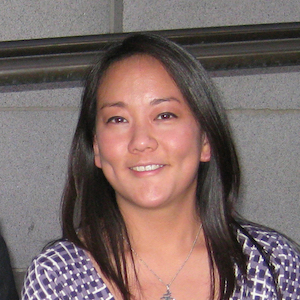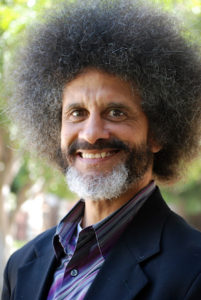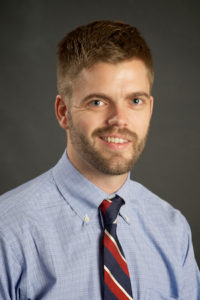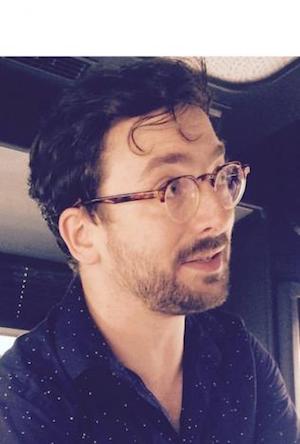USC Pride: USC Experts on the present and future of the LGBTQ+ community
Chosen to commemorate the Stonewall riots, June is Pride Month and includes events and parades to recognize the impact LGBTQ+ people have had on the world. Whether it is the ONE Archives at USC Libraries, historical views on LGBTQ+ art from USC Roski, the present legal status of LGBTQ+ people and what the future may hold for them, or The Center for LGBT Health Equity, USC faculty strive to advance the causes of LGBTQ+ communities and allies.
Contact: Jeremy Pepper, (213) 740-8606 or pepper@usc.edu
ONE Archives promote new scholarship on and public awareness of LGBTQ histories
 “ONE Archives is the largest repository of Lesbian, Gay, Bisexual, Transgender and Queer (LGBTQ) materials in the world. The importance of this collection – founded in 1952 – is immeasurable for the ability of people to learn from the past, so we can have a more inclusive and better present and future.”
“ONE Archives is the largest repository of Lesbian, Gay, Bisexual, Transgender and Queer (LGBTQ) materials in the world. The importance of this collection – founded in 1952 – is immeasurable for the ability of people to learn from the past, so we can have a more inclusive and better present and future.”
ONE Archives at the USC Libraries is the largest repository of Lesbian, Gay, Bisexual, Transgender and Queer (LGBTQ) materials in the world. Founded in 1952, ONE Archives currently houses millions of archival items including periodicals, books, film, video and audio recordings, photographs, artworks, organizational records, and personal papers. ONE Archives has been a part of the University of Southern California Libraries since 2010, and it is our mission to collect, preserve, and make accessible LGBTQ historical materials while promoting new scholarship on and public awareness of LGBTQ histories.
Loni Shibuyama is the ONE Archives Librarian and archivist.
Contact: (213) 821-2771 or shibuyam@usc.edu
Allies can start taking advantage of their privilege
 “Thanks to social media, there’s no longer as much impunity-free discrimination that people are able to express toward each other. But that does not mean that discrimination has disappeared; if anything, in the current environment, it appears to be amplified and approved in social situations and on social media itself.
“Thanks to social media, there’s no longer as much impunity-free discrimination that people are able to express toward each other. But that does not mean that discrimination has disappeared; if anything, in the current environment, it appears to be amplified and approved in social situations and on social media itself.
What can be done? First and foremost, allies can start by taking advantage of their (potential) privilege to make statements that others cannot make, to be in places that others often aren’t.”
Jody David Armour is the Roy P. Crocker Professor of Law at the University of Southern California and has been a member of the faculty since 1995. Armour’s expertise ranges from personal injury claims to claims about the relationship between racial justice, criminal justice, and the rule of law. Armour studies the intersection of race and legal decision making, as well as torts and tort reform movements.
A widely published scholar and popular lecturer, Armour is a Soros Justice Senior Fellow of The Open Society Institute’s Center on Crime, Communities and Culture. His book “Negrophobia and Reasonable Racism: The Hidden Costs of Being Black in America” (New York University Press) addresses three core concerns of the Black Lives Matter movement: racial profiling, police brutality and mass incarceration. He has recently completed a second book that examines law, language, and moral luck in the criminal justice system.
Contact: (213) 740-2559 or jarmour@law.usc.edu
Promoting the physical, emotional and social well-being of all people, regardless of sexual orientation or gender identity
 “Happy Pride! Wondering if you should put a safe space sticker outside your office, a rainbow flag outside your business or say ‘happy pride!’ to your neighbor or a young LGBTQ person? The answer is ‘yes.’ They may never even tell you directly, but the research is clear — having just one safe and supportive adult can be monumental to the mental health of young people.
“Happy Pride! Wondering if you should put a safe space sticker outside your office, a rainbow flag outside your business or say ‘happy pride!’ to your neighbor or a young LGBTQ person? The answer is ‘yes.’ They may never even tell you directly, but the research is clear — having just one safe and supportive adult can be monumental to the mental health of young people.
That’s why I started the Center for LGBT Health Equity — to lead scientific inquiry into the physical, emotional and social health of LGBT youth, adults and families, and guide best practices for achieving health equity for this population. Our vision is a world that promotes the physical, emotional and social well-being of all people regardless of sexual orientation or gender identity.”
Jeremy Goldbach is an associate professor and director of the Center for LGBT Health Equity at the USC Suzanne Dworak-Peck School of Social Work. Goldbach’s research is broadly focused on the relationship between social stigma, stress and health among lesbian, gay, bisexual and transgender (LGBT) youth and adults.
Contact: (213) 821-6460 or goldbach@usc.edu
It’s important to have an identity that belongs to us
 “Early on, we were simply outlawed; a lot of early LGBTQ imagery and material was dedicated to not only making an argument about the validity of our existence and networking within our own communities, but countering overt state interference.
“Early on, we were simply outlawed; a lot of early LGBTQ imagery and material was dedicated to not only making an argument about the validity of our existence and networking within our own communities, but countering overt state interference.
As LGBTQ Americans have become more visible and accepted, the output of cultural expressions have both dropped off and been increasingly appropriated by corporations. So many of our signs and symbols have been co-opted; it’s not enough to see a corporate logo done in rainbow colors. As we have become assimilated, it has come with so many great things. But it’s important to have an identity that belongs to us in how we engage with queer symbology.”
Andy Campbell is an assistant professor of critical studies at USC Roski School of Art and Design. Campbell is an art historian, critic, and curator with more than a decade of experience in higher education and museum institutions.
Campbell’s scholarly and curatorial work explores the identity-based politics of sexuality, queerness, race and feminism, addressing how these movements manifest themselves in visual culture.
He recently published “Queer By Design: 50 Years of Signs, Symbols, Banners, Logos and Graphic Art of LGBTQ,” an anthology of the trek from invisibility into Pride and beyond.
Contact: campbela@usc.edu



